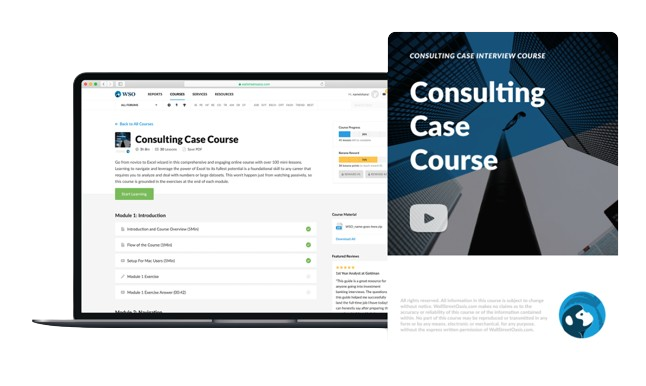Career Goal
A statement that defines what you want to achieve in your professional life throughout your career.
What Is A Career Goal?
A career goal is a statement that defines what you want to achieve in your professional life throughout your career. It's a target that allows you to set an action plan and work towards achieving your ambitions.
Career goals can be either short-term or long-term, depending on strategic planning and alignment with one's aspirations and professional trajectory. However, they can bring you closer to your ambitions, aspirations, and what you can get out of your position.
Career goals drive individuals to achieve success, excel in their endeavors, and continually strive for personal and professional growth. It can be short-term, like getting a promotion, or long-term, like running a business.
In this article, we will walk you through how career goals are beneficial in your professional life, give some examples of career goals to use, give examples of short and long-term goals, and learn other types of goals and how they correlate with each other.
Key Takeaways
- A career goal outlines your professional ambitions, guiding your actions and plans to achieve success and personal growth in your chosen field.
- Short-term goals, achievable within weeks or months, serve as stepping stones towards long-term aspirations, which include achievements over a year, five years, or even a decade.
- Employing the SMART framework—Specific, Measurable, Achievable, Relevant, and Timely—ensures your goals are well-defined, realistic, and aligned with your objectives.
- Achieving career goals involves strategic planning, continuous assessment, and adaptation to changing circumstances, fostering personal and professional development.
- Career goals drive individuals toward goals, aiding in skill development, advancement opportunities, and aligning personal aspirations with professional endeavors.
How to Achieve Career Goals
Planning career goals requires thoughtful consideration and strategic planning. To work towards them, you must think about your short-term and long-term goals and how to reach them. These will help build the stepping stones of your professional work life.
Career goals benefit individuals at different stages of their professional journey, including recent graduates seeking employment. They are also useful for planning your future working career so we can succeed further down in life.
Suppose your long-term goal is to become a marketing manager. To achieve your long-term plan, you have to start with short-term goals, like talking to peers to help find a strategy, attending relevant events to get more knowledge, creating marketing plans, etc.
From there, you'll have to create and follow a plan by ensuring your goals are realistic and achievable. You can do this by researching, looking for careers that match your interests and skills, and setting time frames to stick with.
When you're done creating your plan, review it to see if it suits you. If circumstances change, adjust your plan to how it will fit within your time frame. You can change things in your plan to reflect these developments as things change.
After achieving your goals, it's important to reassess and refine your career aspirations, following the steps outlined above to plan for new objectives.
Short-Term Vs. Long-Term Career Goals
Short-term career goals are smaller stepping stones people take to reach their long-term aspirations. These goals can be achieved in weeks, days, or months, providing opportunities for individuals to learn new skills and set milestones to advance their career paths.
Some examples of short-term career goals include:
- Finding a new job
- Landing a promotion
- Getting a certificate
- Preparing for job interviews
- Learning to take accountability
- Acquiring new skills
- Making a plan
On the flip side, long-term career goals are professional aspirations that you set for a long period. Long-term career goals can be achieved within a year, 5 years, or a decade. There is no specific deadline, but you still know what you want to accomplish by the end of your working life.
Examples of long-term career goals include:
- Improving your abilities
- Developing leadership skills
- Merging career and personal objectives together
- Building a professional network
- Starting a new business
Note
These two types of goals are useful for individuals in planning out their career paths and the necessary steps to ensure they are on the right path to success in the workforce.
How To Set Career Goals
One way to measure your career goals is by using SMART. It stands for Specific, Measurable, Achievable, Realistic (or Relevant), and Timely. This helps set targets and objectives, which will lead to better results.
SMART is a helpful tool if you are looking at how to plan your future. You want to ensure that the plans are specific, that they are measurable, that they are achievable, that they are realistic, and that they are time-bound.
Using SMART
The S in SMART stands for specific. In this step, you'll want to think about the mission statement. Ask yourself:
- Who's involved?
- What are you trying to accomplish?
- What steps are needed to follow through?
- Why is it important to you?
The next step is to measure it. This is a good indicator of how successful a goal can be. You can measure it through reports, surveys, samples, tests, work products, and other data types.
From here, you want to ensure it's achievable and attainable. You'll have to think about how you can accomplish it if you have the skillset and consider how to attain it if you have not.
Then, you'll want to ensure it's realistic or relevant. Finally, ensure that your goal is relevant to your objectives and that its alignment with other plans contributes to collective progress.
Finally, you want to ensure that your idea is time-bound, meaning that your target has a deadline to focus on so you can work towards achieving your idea. Ask:
- When can you work on it?
- When can you get it done?
- What can you do now?
- What can you do a few weeks from now?
Career Goal FAQs
Planning through your livelihood is always a pretty tough thing to consider. The best way to set them would be to:
- Write them down
- Share them with your friends and family
- Visualize how you want to achieve them
- Have a time frame in mind
- Make them SMART (Specific, Measurable, Achievable, Relevant, Time-bound) by using the SMART method
Some targets that you could set for yourself to become more successful and boost your overall professional life would be to:
- Find a job that you love, you are good at, and are passionate about
- Research the position you want to apply for to get a good idea of what you will do in that position
- Become an expert in your field of choice
- Manage your time and resources efficiently
- Avoid procrastination by setting clear deadlines and prioritizing tasks effectively
- Reduce distractions and prioritize tasks to focus on high-priority activities
- Do something relaxing, like walking, to clear your mind, so you feel less stressed
Some career goals that can help you achieve success in the workplace include:
- Boosting time management skills
- Learning new skills
- Balancing between work and life
- Finding new obstacles and overcoming them
- Fostering team collaborations
- Broadening your professional networks
- Taking on the responsibility of becoming a leader
- Learning and consuming content from thought leaders in the industry.




or Want to Sign up with your social account?